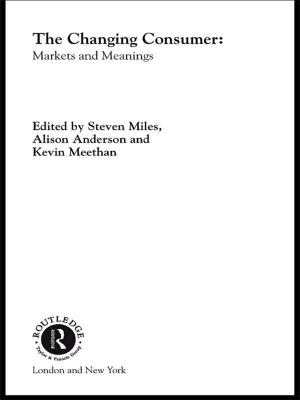An Alternative Philosophy of Development
From economism to human well-being
Business & Finance, Economics, Nonfiction, Social & Cultural Studies, Political Science, Social Science| Author: | Birendra Prasad Mathur | ISBN: | 9781315388724 |
| Publisher: | Taylor and Francis | Publication: | November 25, 2016 |
| Imprint: | Routledge India | Language: | English |
| Author: | Birendra Prasad Mathur |
| ISBN: | 9781315388724 |
| Publisher: | Taylor and Francis |
| Publication: | November 25, 2016 |
| Imprint: | Routledge India |
| Language: | English |
While development has been the foremost agenda before successive governments in India, it has been viewed narrowly – from the perspective of economic development and particularly in terms of gross domestic product (GDP). This book questions such an approach. It breaks from the conventional wisdom of GDP growth as being a definitive measure of the success of a country’s policies and offers an alternative development philosophy.
The author contends that people’s economic and social welfare, life satisfaction, self-fulfilment and happiness should be treated as indicators of real development. The book underlines that in a successful model of development, the country’s economic policies will have to synergize with its cultural ethos and that the objective of development should be gross national happiness and well-being of the people.
This book will be useful to scholars and researchers of development studies, economics, public policy and administration, governance, political science and sociology, as well as to policymakers.
While development has been the foremost agenda before successive governments in India, it has been viewed narrowly – from the perspective of economic development and particularly in terms of gross domestic product (GDP). This book questions such an approach. It breaks from the conventional wisdom of GDP growth as being a definitive measure of the success of a country’s policies and offers an alternative development philosophy.
The author contends that people’s economic and social welfare, life satisfaction, self-fulfilment and happiness should be treated as indicators of real development. The book underlines that in a successful model of development, the country’s economic policies will have to synergize with its cultural ethos and that the objective of development should be gross national happiness and well-being of the people.
This book will be useful to scholars and researchers of development studies, economics, public policy and administration, governance, political science and sociology, as well as to policymakers.















